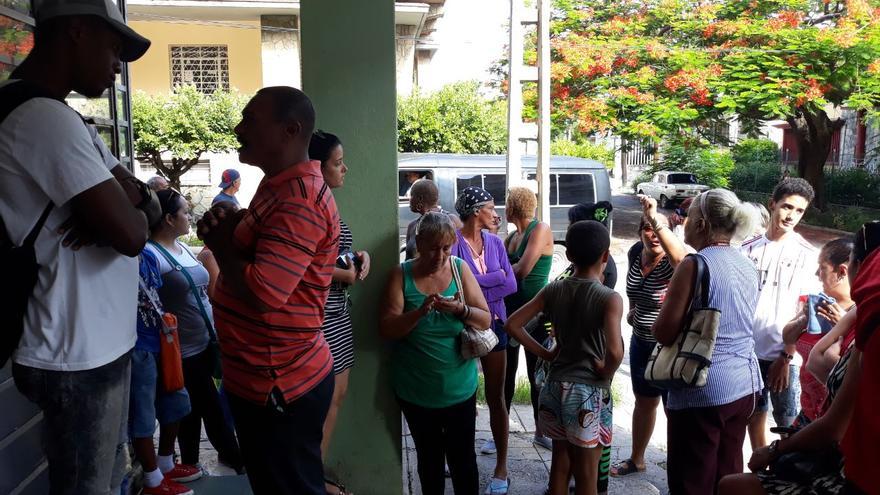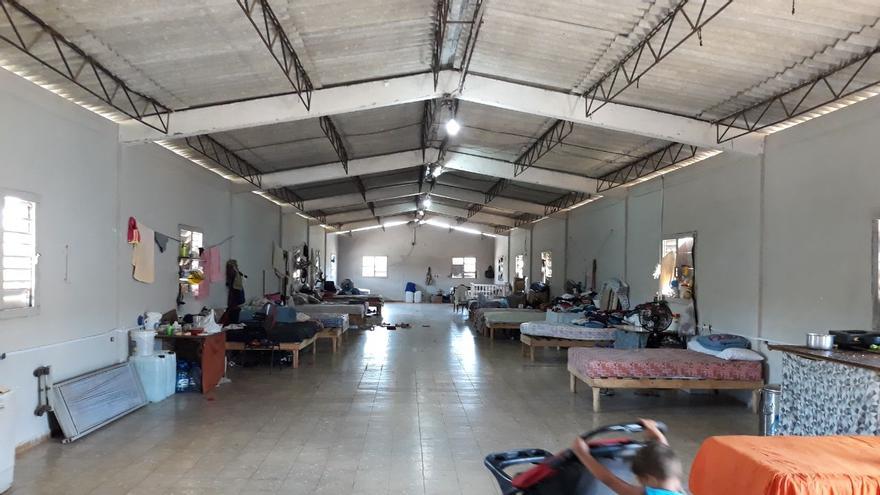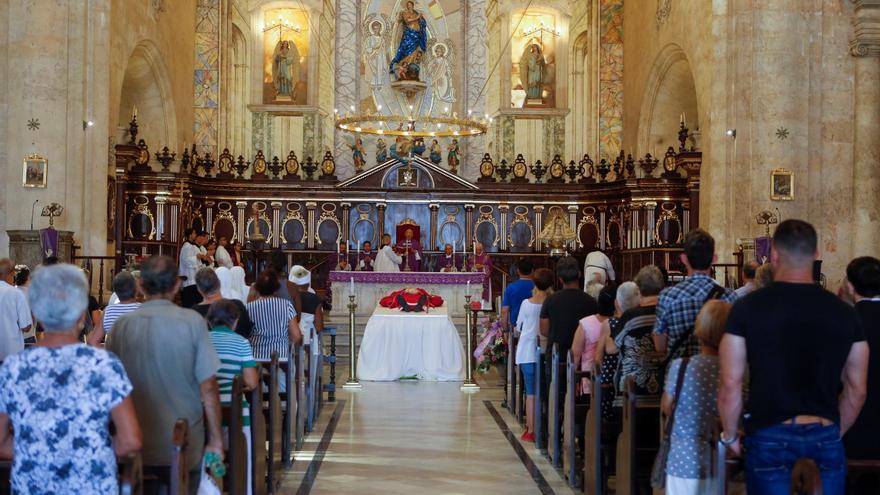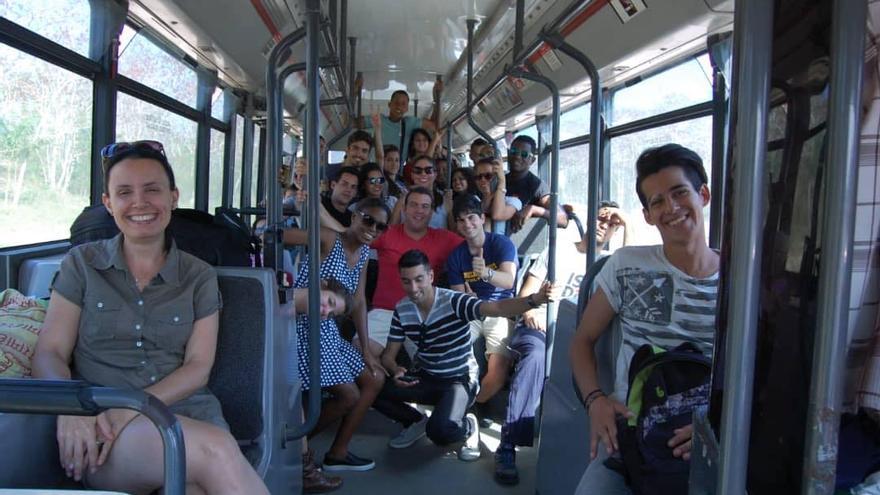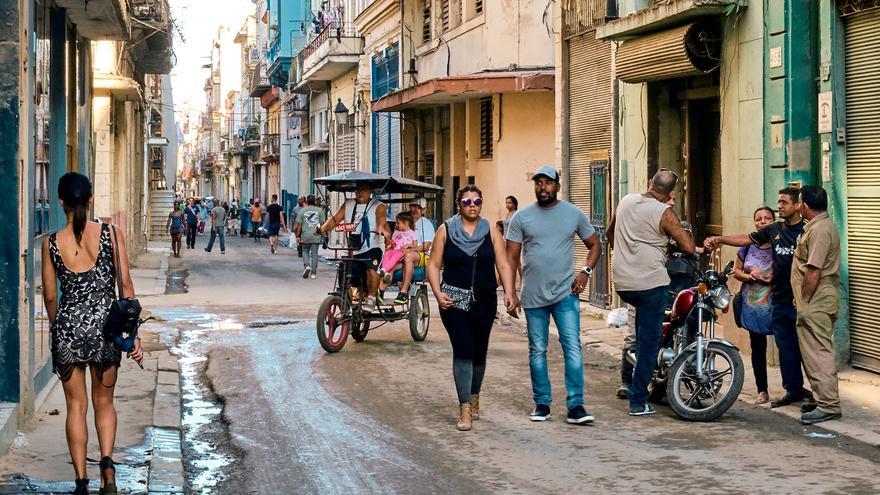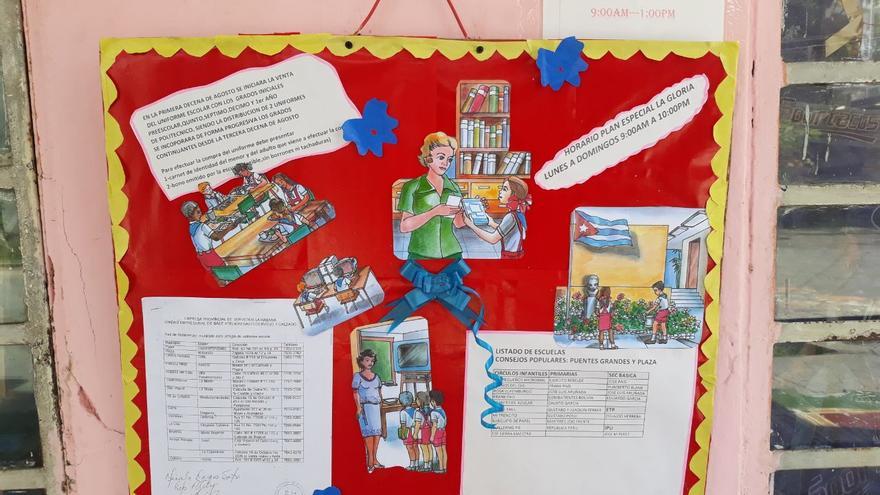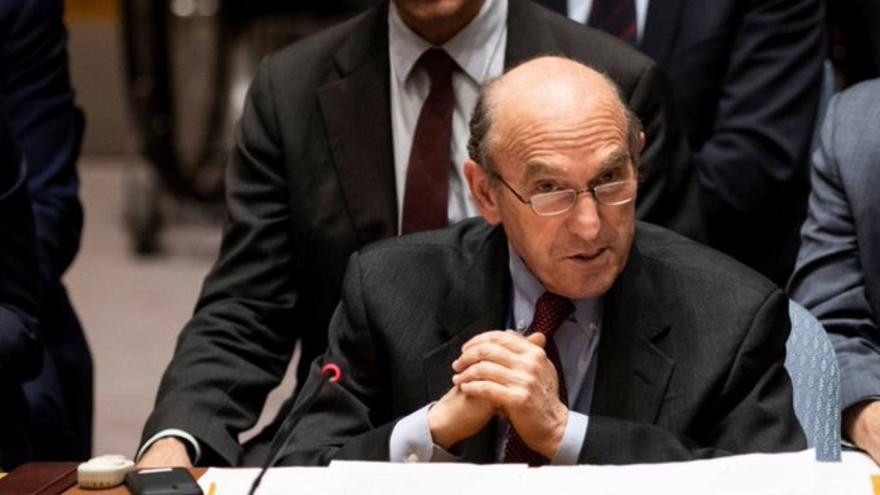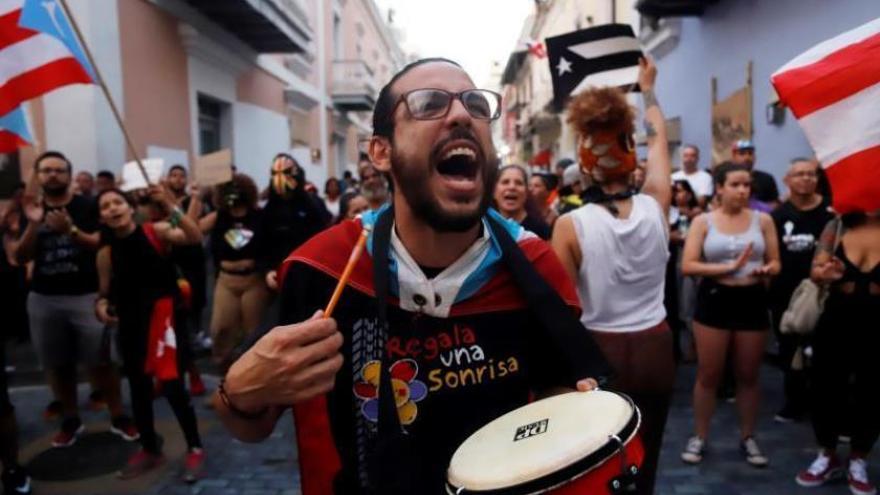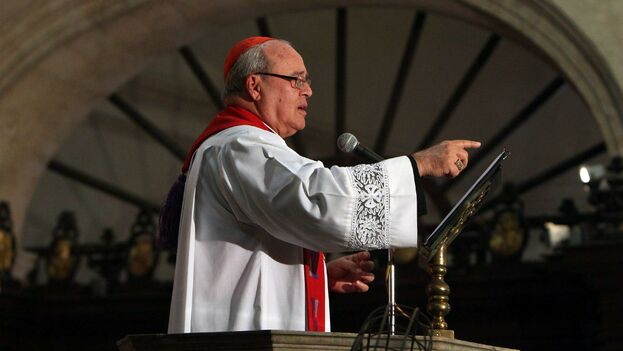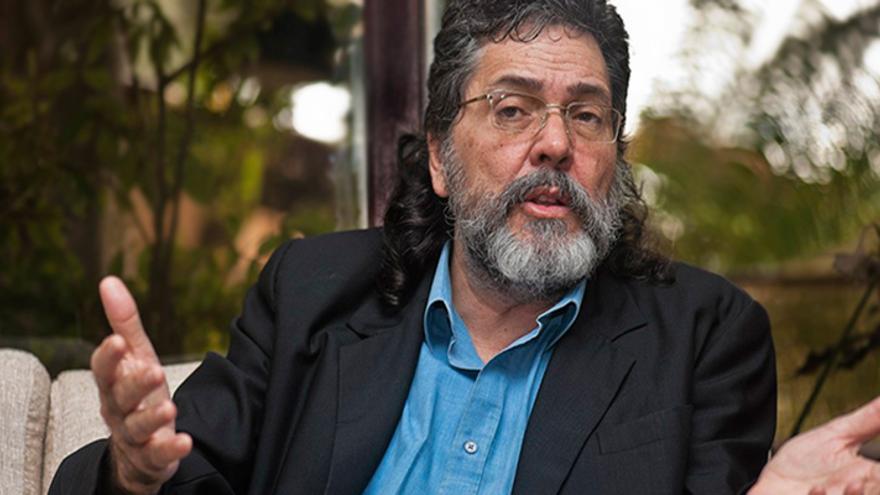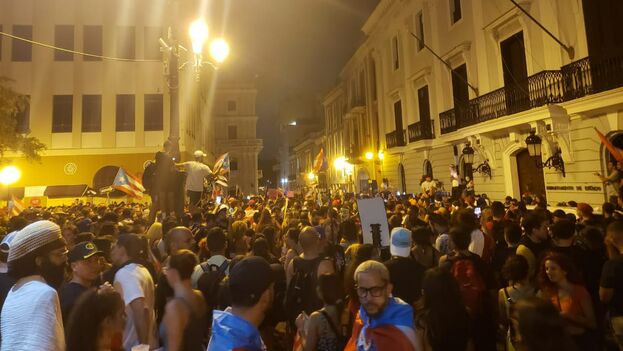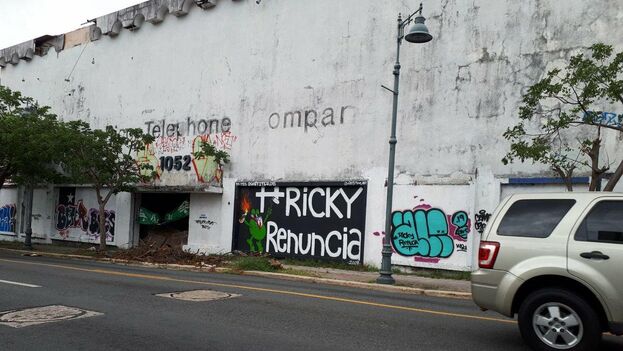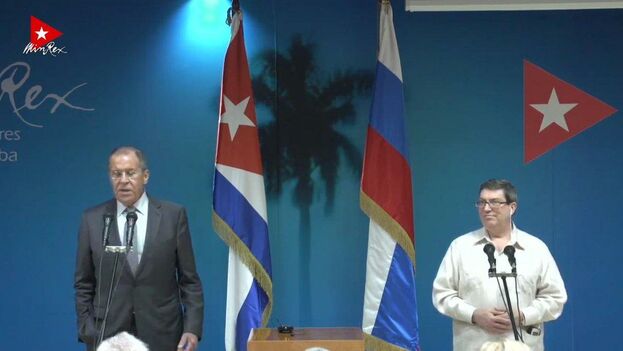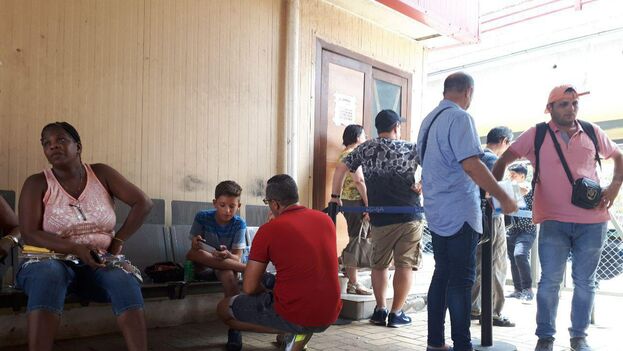
![]() 14ymedio, Yoani Sanchez, Havana, 6 August 2019 — “Mommy put your feet up, put your feet up,” says a daughter with a worried face to a lady who has been waiting for eight hours in the missing luggage department in terminal 3 of the José Martí International Airport in Havana. The old woman tells me that she has recently had cancer surgery and has a very painful leg.
14ymedio, Yoani Sanchez, Havana, 6 August 2019 — “Mommy put your feet up, put your feet up,” says a daughter with a worried face to a lady who has been waiting for eight hours in the missing luggage department in terminal 3 of the José Martí International Airport in Havana. The old woman tells me that she has recently had cancer surgery and has a very painful leg.
The dialogue takes place near an official of the General Customs of the Republic (AGR) who, in her red supervisor’s vest, comes out to explain the delay. People just let her talk, especially Rafael Vidal, a 57-year-old, thin and hyperkinetic Cuban who has been trying to recover his lost bag for 24 hours.
Due to the strict customs regulations and the convoluted mechanism that allows Cubans to pay import fees in Cuban pesos – but only once a year – Cubans with lost luggage have to go to the airport to deal with the cumbersome process. continue reading
On the afternoon of August 3, Vidal is desperate and the others there tell him to remain calm, “you’ll give yourself a heart attack,” they say. But he keeps gesticulating and jumping around without getting Customs employees to do their work any faster. It takes them between 30 and 45 minutes with each client, but sometimes up to an hour.
To retrieve luggage, you must first get into the outer line, and then after two or three hours you can access an office where a passenger must locate their luggage. If an airline representative arrives, the customer can advance somewhat in line but still the average wait is between 5 and 8 hours during the day. Soon you will have to weigh the suitcase and fill in the Customs form. Between one thing and another endless minutes pass in which nothing happens.
In some seats – which once had padded bottoms but are now only metal – those of us who wait exchange stories. “I’m here since five in the morning,” says a father with a small girl. “I have not had breakfast or lunch because I can’t go out,” adds a teenager who points out the padlock that closes the access gate, located on the side of the main terminal building.
We are not imprisoned, no judge has dictated that they lock us up, but we all know that going out to try to go to the bathroom or drink some water can mean losing our place in line. We are prisoners of Customs; inmates without prison uniforms or bars, although prisoners in the end.
We remain in a corridor, between two offices, with a light roof full of gaps and a floor that has not been cleaned in months. There is no bathroom, drinking fountain, or a place to buy something to eat. Outside, first under the inclement sun and then soaked by an intense downpour, are the less fortunate, those who have not even been able to enter the area where they can sit.
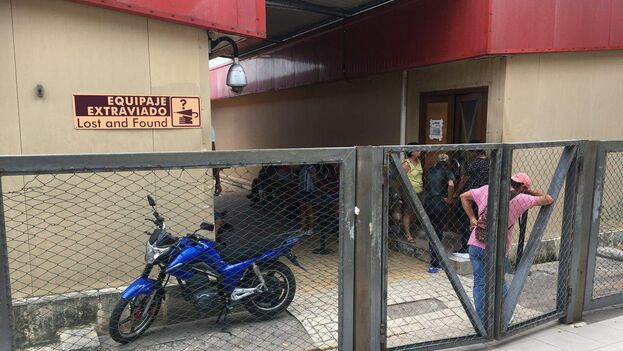
“I got in line before noon,” says a talkative lady who is still tired from her long journey from Mozambique where her doctor daughter lives. When she arrived, Customs confiscated an electric oven for not complying with the import requirements and she does not understand why, as of three o’clock this Saturday, she has not been given her suitcase, which has been in Havana for a day.
That ordeal is only experienced by Cubans, including those who reside outside the Island, since most tourists will get their lost luggage delivered to their hotel or the rental house where they are staying. “We are not people, we are animals,” laments a woman who has arrived with her daughter to claim some bundles. She says it almost under a surveillance camera, with a fish eye-shaped lens, at which she stares defiantly.
“Foreigners do not stand in line and if you drop a bill in the right hands you go through very quickly,” complains a young man next to me with dark glasses that hide his eyes, red from not sleeping. “I arrived Thursday on the Aeroflot flight and my suitcase landed yesterday,” he says in a weak voice. He opens a package of cookies and offers them, hands come up fast to get one.
In the almost six hours I spend there, I see everything. A European retrieves his suitcase in minutes and tries to pay the airport employee who slipped it to him, but the man indicates with a gesture that it is better to make the transaction more discreetly. Another, in exchange for two ice cream snacks, wins the favor of a customs official, while a woman passenger breaks into tears of despair under the sign that says “lost luggage.”
Strong ties are woven between the preschool teacher, the reporter for 14ymedio, the young man traveling on an official passport, a woman returning to stay, a reggaetonero, a teenager who grew up in Belgium but whose dual citizenship is not recognized in Cuba, a young man who does not want to protest so as not to stand out, and the retiree who sees “a repudiation rally or a tribute as the same thing,” he says.
No one shows any mercy to Customs: it is the enemy; we, a varied and unarmed platoon. In there they have weights, scanners, forms, arrogance, grim looks; out here helplessness, annoyance, anger… a rage that is taking shape as the hours go by. Vidal is the most troubled because he is the one who has been waiting the longest.
The man shouts that he will complain, that he needs witnesses of so much “abuse”; some laugh softly thinking he is crazy, but most support him, close ranks with him. You can’t be very sane and challenge power in Cuba, much less a Customs that decides what merchandise can make a family happy and relieve their daily hardships.
Everything related to luggage uncovers sensitivities. We packed the gifts for relatives, the medicines for a patient, the order that a friend entrusted us. Behind every suitcase is a drama. “I brought a cream for the bedsores of my grandfather who is prostrate and I have not been able to get it for four days,” says a woman who waits by my side, while the rain sneaks through the gaps in the roof and soaks us.
Another woman takes out a pen to share with those who must fill out the Customs form, although they have already completed one before arriving in Cuba, a blue piece of paper asking if we are bringing live animals or pornography, when the danger is actually something else.
The authorities limit private imports because the State wants to continue selling its lousy products at very high prices in its stores.
For Customs, we are potential criminals who carry a larger number of disposable shavers in our bags, cans of sardines that we do not declare, or shoes that are not our size and that make it clear we are importing them for third parties. We are the enemy and they treat us as such.
Fear shows in every step that the AGR employees take before the tired but attentive eyes of a crowd that after several hours of waiting seems to have lost its own fear. “Either they give me the bags or I denounce them”; “They deal with me right now or this is going to go through the channels [alluding to Miami television]”; “They expedite this or even Raúl Castro will find out,” shout the more daring.
There is a Cuban couple living in the United States who have brought their son. The boy plays on a cell phone but occasionally emits a phrase of despair. Heat and dirt envelop everything. The mother warns him that, although he was born on the other side of the Florida Strait, he has to learn that in Cuba “making anything happen requires work.” Not very satisfied, the little one concentrates on the screen.
A lady notices me. “You are a journalist, right?” she says loudly. A score of eyes look at me. “You are going to have to report this,” voices from several corners demand of me, charging me with the responsibility of writing down the long hours they have been there, the employees’ laziness and their absolute inefficiency. I can’t escape, it’s my turn.
The supervisor explains that “this is complicated every day but today it has been more complicated than ever because the system is down,” in reference to the computer program that collects the data of all travelers who pass Cuban immigration. I like the phrase … and yes, the “system” is on the ground, broken, bankrupt, taking on water everywhere, I add in my mind.
Others do not miss the opportunity and also joke about the double meaning of the phrase. “Look, it fell and we didn’t even have to lay it down,” says a woman with a beautiful rose-shaped tattoo who arrived around three in the afternoon.
“Every time we try to scan a passport, it does not give us the passenger’s record,” the red-vested supervisor justifies herself. “Then we have to ask the security cameras to review the filming of the day the traveler arrived,” she adds. When the “system goes down” they can only know if the person brought more kilograms of luggage than allowed by checking that footage.
In my mind the scene reminds me of the television series where an electronic eye watches everything, whether the passenger was carrying one suitcase, two or none. According to this supervisor, to return lost luggage to its owner, it is necessary to check in the security recordings to see how many packages the traveler took from the airport the day they left.
It is not that the lady thinks us fools, she knows that she is speaking to Cubans, a “domesticated” and controlled group… at least she thinks so. The treatment she gives us is like that of an officer who gives orders to his soldiers. “Don’t disrespect me,” “you have to wait,” “if you don’t like it, leave,” “if you keep bothering us we’ll kick you out of here,” “your problem,” “this is the procedure and we have to collect the money for the State,” the employees say.
After four in the afternoon the rain continues and the water floods the place, some raise their feet in the seats and others are resigned to it. None of the office doors open to summon us to shelter inside them. “Revolution is humanity,” one mocks, repeating a slogan from a billboard. I estimate that every day the place collects thousands of pesos in import fees, but they have not invested much in improving it.
They call me by my name. A Customs officer tells me that I can’t go through with the cart and I appeal to the lady who arrived from Mozambique. We are already friends, there is trust. The hours waiting have united us. They move a metal detector over my body and ask me to go to a dimly lit corridor where I find my suitcase. They also collect my passport and the import form.
The process is just beginning. They tell me to go out again. Outside Vidal looks like a caged lion and the temperature of his protest has risen. We are all soaked, hungry, upset and have that look of those who are already willing to lose everything, including their suitcase. Someone suggests that we go to the State Council and another gives their phone with some recordings to a relative and says “upload them to the internet.”
The screams of the daughter with the newly operated mother increase in volume. We all join. “Let that lady go and just give her her suitcase,” we bellow. An employee comes out and says she was able to scan seven passports to know the “import history of each one.” There are seven chosen ones, seven lucky ones. Vidal is one of them, perhaps to prevent him from continuing to call for a revolt.
The ungainly man puts a makeshift sign on the door: “People outside forbidden to enter the premises.” We are all Vidal, a little crazy, fed up, too mad. Thirty long minutes pass and he comes out with a briefcase and a look that fails to appear relieved. Immediately from inside they say my name and I go back in, and the employee attending me is paying more attention to the ice cream snack she just went to buy than to her work.
At a table with battered corners, another worker fills in a few sheets with a pen stroke where the name of the travelers appears. Obviously “the system has not come back to life and we are in the analog era,” I think. The phrases are rude, abuse is breathed in with the air, nobody says “sorry” for the technical problems that have caused the wait. At times I feel like some abandoned furniture in the middle of the office.
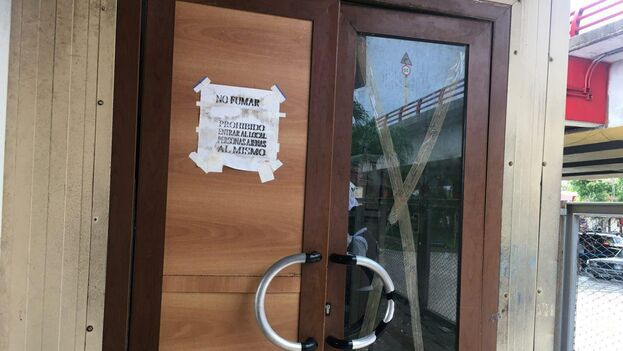
I look for my suitcase in the dimly lit hallway. Every corner of the room is trashed, all tiles have traces of grime and the place smells like dirt. “Where is your Customs form?” He asks me. “I already delivered it with my passport,” I babble, tired and shivering. “No, it’s not here,” he says.
The worst was yet to come. The inefficiency of Customs reached the point where they had given my passport to Vidal, who had quickly left for Las Tunas. In that chaos of documents scattered on the table, they didn’t even check the name, the photo or the gender. As he confirmed hours later, he was given a document twice, once his and once mine. The man, who was running on overdrive, didn’t even notice.
Anger rises, the employee washes her hands. “You have to find out where Vidal lives to get your passport back,” she tells me in a festive tone. I will have to become Sherlock Holmes for a mistake they made. But of course, Customs is untouchable, sure of itself, it doesn’t have to do anything for us, even when it loses the only document that allows you to cross national borders.
They let me carry my suitcase even though I no longer have identification that certifies to Customs that I am me, that I have entered Cuba on a certain date or that I have not brought any imports that require customs duty to be paid. They abandon me to my fate. I am an uncomfortable discard of their lack of efficiency.
I go out and the faces of frustration are still out there. I still have the strength to say that they are awaiting hours of abuse, inefficiency and the possible loss of their documents in the hands of a Customs office that knows how to control but not to take responsibility, an entity that acts as a watchdog but not as a safeguard; an guardian of imports that does not incur duties, only rights.
I run as fast as my legs will let me. I shout the name of Vidal in the parking lot and along the terminal exits, in the taxi area, to see if I can find him before he leaves with my 32-page booklet and filigree sheets. People think I’m crazy and by now they may be right.
The lady who had surgery with the sore leg passes by me and offers words of encouragement to follow. I can no longer cross the fence with a padlock that separates me from the employees of Customs at the Lost Baggage office. There, in the uncomfortable seats, with the dirty and still flooded floor, dozens of people wait to complete the same process that I know well. They have long faces and continue to complain loudly.
Twenty hours later I will rescue my passport thanks to the help of the employees of the JetBlue and Avianca airlines, together with the persistence of Rafael Vidal, who engaged all his energy to return it to me as soon as he realized the error. And the General Customs of the Republic that should have watched over my document and helped me in the process of recovering it? I’m still waiting for an apology.
_______________________________
The 14ymedio team is committed to serious journalism that reflects the reality of deep Cuba. Thank you for joining us on this long road. We invite you to continue supporting us, but this time by becoming a member of 14ymedio. Together we can continue to transform journalism in Cuba.

